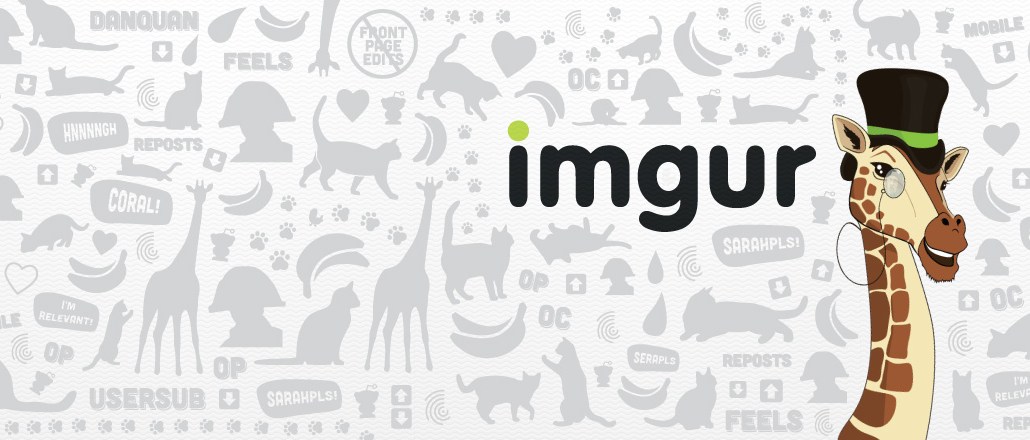Secure your place at the Digiday Publishing Summit in Vail, March 23-25

Image-sharing service Imgur is the most popular media platform marketers don’t think about.
Now, with a U.S. audience of 31 million that has doubled in the past year, Imgur is launching a new native ad product that takes its cues from the ways larger social platforms approach ads.
In July, Imgur plans to launch a “promoted posts” feature with roughly a dozen brand partners, enabling advertisers to reach its large community with images, GIFs and memes in line with the other user-submitted content on the platform. Similar to a promoted tweet on Twitter or a promoted pin on Pinterest, a promoted post on Imgur gets more visibility than it would on its own, positioning the content in users’ image streams. Promoted posts will show up in the right rail “side gallery” alongside all the other image options, with a small blue border to differentiate it from user-uploaded content.
“There has never been a company that has scale and a loyal audience that hasn’t figured out how to monetize it eventually,” said Steve Patrizi, vp of sales and marketing at Imgur. “But we’re making sure we do that responsibly. … If we lose our community, then everything falls down.”

Imgur attracted more than 31 million U.S. unique visitors to its site and mobile app in February, up 97 percent from the same period last year, according to comScore. That makes it the 106th most-visited site in the U.S. — and bigger than reddit, which funnels a portion of its 25 million monthly uniques to funny cat photos and other Internet fare hosted on Imgur. (Imgur was originally built to be an image-sharing tool for reddit.) But Imgur’s fastest-growing source of traffic is direct, with 30 percent of its visitors navigating directly to the service through its site and mobile app, according to Patrizi.
Imgur, with just 47 employees, is already profitable, according to the company. It has one display ad on desktop and mobile, which it fills programmatically. The CPMs are low, but the ad revenue adds up thanks to the platform’s immense scale. The company used to sell Imgur Pro subscriptions but phased that out in February, shifting to an entirely ad-supported business model.
But Imgur is not on most marketers’ radars yet. There’s no follower system for registered users — registration isn’t even mandatory in order to post content — so it’s tough for brand marketers to develop organic traction on the platform. And beyond Imgur’s one display ad unit, all of its ad campaigns have all been experimental so far. Last year, it ran a series of “sponsored posts” for a few advertisers, including 2K Games, which promoted its latest “Borderlands” video game with a series of GIFs created specifically for the Imgur community. Paramount also promoted its film “Anchorman 2” with an Imgur campaign.
Promoted posts are an evolution of sponsored posts, with one key difference at launch: They will show up as visitors navigate through series of images, but they won’t appear on the Imgur homepage. That strategy makes sense, given the majority of traffic is not to its homepage.
“Because it’s the full page, our hope is that brands can be pretty thoughtful around how they communicate,” said Patrizi. “They don’t have to do a quick grab for attention to compete with other stuff on the page.”
Imgur plans to add geographic targeting capabilities and the ability to advertise in specific content verticals, such as animal-related posts. But at launch, everyone will see the same promoted posts, just as they see the same images and GIFs on Imgur. Sometimes, that content can veer toward the obscene — an issue on every platform with user-generated content — which could scare away some family-friendly advertisers.
“There are clearly brands out there that want to target young male audiences, and this would be a great place to do that,” said Jan Dawson, chief analyst at Jackdaw Research. “But it’s harder to imagine a P&G or any big-name brand that strives for a certain amount of family friendliness wanting to find their ads in the midst of some of the stuff that gets shared on Imgur.”
The Imgur community, like reddit’s, has its own inside jokes and sensibilities. That could work in the favor of brands willing to tailor their campaigns specifically for Imgur but could frustrate marketers planning to recycle their creative for the platform. Even with 31 million U.S. uniques, Imgur may not warrant its own strategy for some larger brands and agencies.
But Imgur is trying to convince them that it does. Flush with venture capital from top Silicon Valley investment firm Andreessen Horowitz, which poured $40 million into the company last year, Imgur has nabbed sales and marketing talent from YouTube, LinkedIn and Amazon. Under Patrizi, these new hires will work to build out the ad product road map and establish relationships with agencies and brand marketers. But it’s treading carefully, putting its community’s satisfaction above all else.
“Community is the most important thing to Imgur, and to us,” said Lars Dalgaard, general partner at Andreessen Horowitz. “We’re not the type of investor to ever pressure our companies to monetize at all costs. We’re about helping our companies find the right way to monetize what’s true to their culture and scale, without sacrificing the loyalty or experience of their users.”
Main image created by Matthew Fraher / Digiday
More in Media

Why more brands are rethinking influencer marketing with gamified micro-creator programs
Brands like Urban Outfitters and American Eagle are embracing a new, micro-creator-focused approach to influencer marketing. Why now?

WTF is pay per ‘demonstrated’ value in AI content licensing?
Publishers and tech companies are developing a “pay by demonstrated value” model in AI content licensing that ties compensation to usage.

The case for and against publisher content marketplaces
The debate isn’t whether publishers want marketplaces. It’s whether the economics support them.





